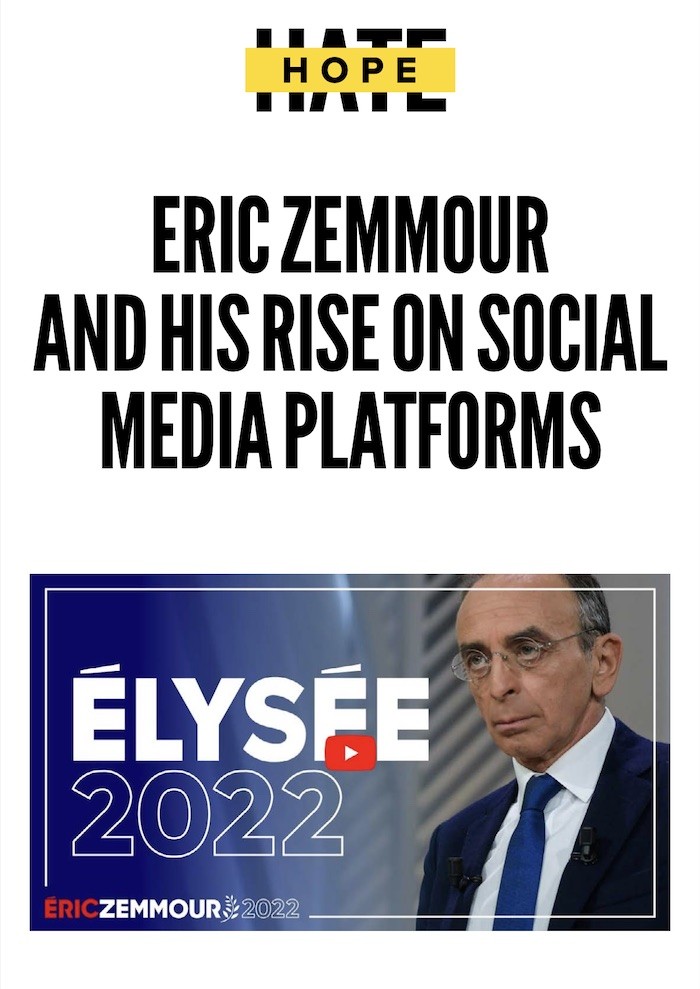HOPE not hate uses cookies to collect information and give you a more personalised experience on our site. You can find more information in our privacy policy. To agree to this, please click accept.
When French pundit Eric Zemmour announced his candidacy in the French elections on 30 November 2021, he did it on YouTube instead of holding a press conference. Eric Zemmour has often been likened to former US President Donald Trump, both for his rise in popularity as a Presidential candidate and his casual racism on social media. Zemmour has stated he wishes to ban “non-French” names such as Muhammad, has argued that employers should be able to turn down Arab or black people as applicants, and that men should hold political power. Like Trump and other populists, Zemmour has also framed himself as an outsider speaking the truth, unlike the “political and media elite”.
Despite being in the mediatic sphere for decades, Zemmour’s social media presence has exploded over the last year, generating more engagement online at one point than any other candidate, including the French President Emmanuel Macron. Part of this popularity has been his ability to stir controversy and produce polarising content, which social media algorithms then amplify. Zemmour has explained the rise of his social media presence as an organic growth in supporters and the popularity of his messages, but he has used several techniques to expand his reach and importance online.
This report examines his presence on four platforms: YouTube, Facebook, Twitter and Telegram, and outlines the tactics used by Zemmour to expand his reach and amplify his message more successfully than certain established rival candidates, such as Marine Le Pen and Emmanuel Macron.



A Reform Party candidate fantasised about deporting “millions” of British citizens to “rid itself of the foreign plague we have been diseased with”. UPDATE: Reform…